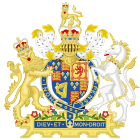Poor Relief Act 1662 facts for kids
| Act of Parliament | |

|
|
| Long title | An Acte for the better Releife of the Poore of this Kingdom. |
|---|---|
| Citation | 14 Cha. 2. c. 12
|
| Dates | |
| Royal assent | 19 May 1662 |
| Commencement | 7 January 1662 |
| Other legislation | |
| Amended by |
|
| Repealed by |
|
|
Status: Repealed
|
|
| Text of statute as originally enacted | |
The Poor Relief Act 1662 was an important law passed in England in 1662. It was also called the Settlement Act or the Settlement and Removal Act. This law was created to decide which local area, called a "parish," was responsible for helping people who were poor or needed support. Before this Act, it was often unclear which parish should help someone. This law made it clear by deciding a person's "settlement," which was their official home parish.
Contents
Understanding the Poor Relief Act 1662
The main goal of the Poor Relief Act was to make sure that every poor person had a specific parish responsible for them. This meant that if someone needed help, like money or food, their "home" parish would be the one to provide it. This was the first time a document, called a "settlement certificate," was legally required to prove where someone lived.
How the Act Worked
After 1662, if a person moved from their home parish to another area, they were supposed to carry a settlement certificate. This certificate was like a guarantee. It promised that their home parish would pay to send them back if they ever needed poor relief in their new location.
However, parishes often didn't want to give out these certificates. This made many people stay in their home parishes. They knew that if they became poor, their own parish would have to help them.
Rules for Gaining Settlement
The 1662 Act said that if a poor person stayed in a new parish for 40 days without anyone complaining, they could gain "settlement rights" there. This meant the new parish would then be responsible for them. A "poor person" was usually someone who rented property worth less than £10 a year.
However, there was a catch. Within those 40 days, if anyone in the new parish complained, two local justices of the peace could order the person to be sent back to their original home parish.
Closing the Loopholes
Some parish officers tried to get around this rule. They would send poor people to other parishes and tell them to hide for 40 days. After this time, the person would officially gain settlement in the new parish.
To stop this, the law was changed in 1685 by the Reviving and Continuance Act 1685. This new rule said that anyone arriving in a new parish had to register with the local authorities. But even then, some sympathetic parish officers would hide these registrations. They would wait until the 40 days were over before revealing the new arrivals.
So, the law was made even stricter in 1692 by the Poor Relief Act 1691. This Act required parish officers to publicly announce new arrivals. They had to write down the registrations and read them aloud to the community during Sunday church services. The 40-day count for settlement would only begin after this public announcement.
Impact on Landowners
The settlement laws also helped people who owned large estates and controlled housing. Some landowners would tear down empty houses on their land. This was done to reduce the number of people living there and prevent poor people from returning. It was also common for landowners to hire workers from nearby parishes. This way, if the workers became poor, they could be easily fired and sent back to their own parishes.
Local judges, called magistrates, could order parishes to give poor relief. But often, these magistrates were also landowners. This meant they were unlikely to make decisions that would increase the poor rates, which were taxes collected to help the poor.
End of the Settlement Act
The Poor Relief Act was eventually changed in 1834 by the Poor Law Amendment Act 1834. This new law introduced workhouses, which were places where poor people could live and work. The idea of parish settlement was seen as old-fashioned. It made it hard for people to move to new factory towns for work, which was important as industries grew.
The Act was finally completely removed from law in 1927 and again in 1948.
Settlement Terms
To gain settlement in a parish, a person had to meet at least one of these conditions:
- Be born in that parish.
- Live in the parish for 40 days in a row without anyone complaining.
- Be hired for a job lasting more than a year and a day within the parish. (This often led to shorter job contracts so people wouldn't gain settlement).
- Hold an official position in the parish.
- Rent a property worth £10 per year or pay that amount in taxes.
- Marry someone who was already settled in the parish.
- Have received poor relief from that parish before.
- Complete a seven-year apprenticeship with someone who was settled in the parish.
Sources
- Text of the Act
- Workhouse.org.uk – Full Text of the Act
 | William Lucy |
 | Charles Hayes |
 | Cleveland Robinson |

